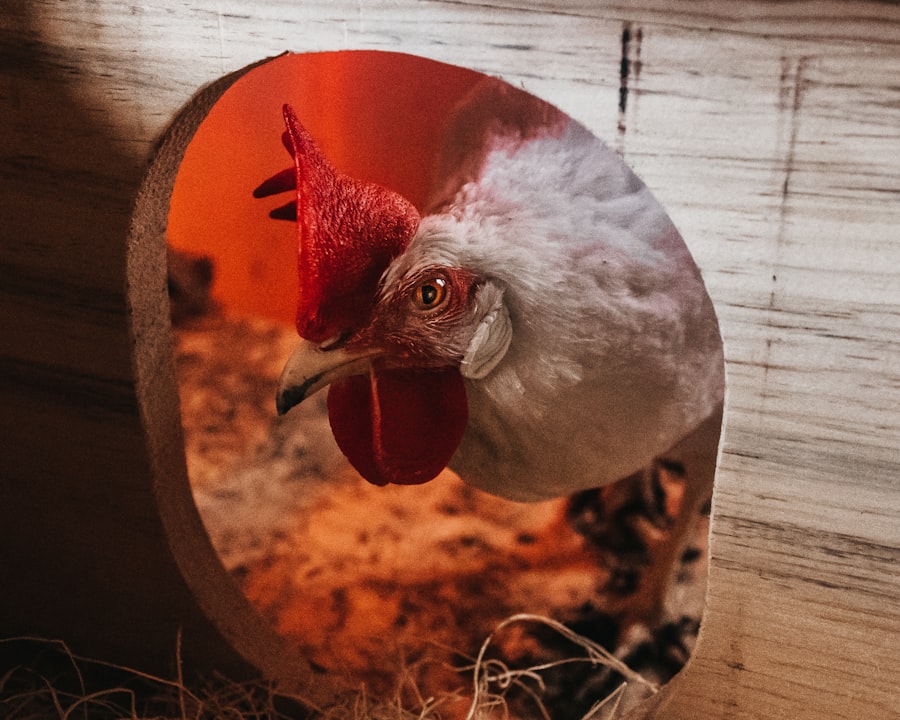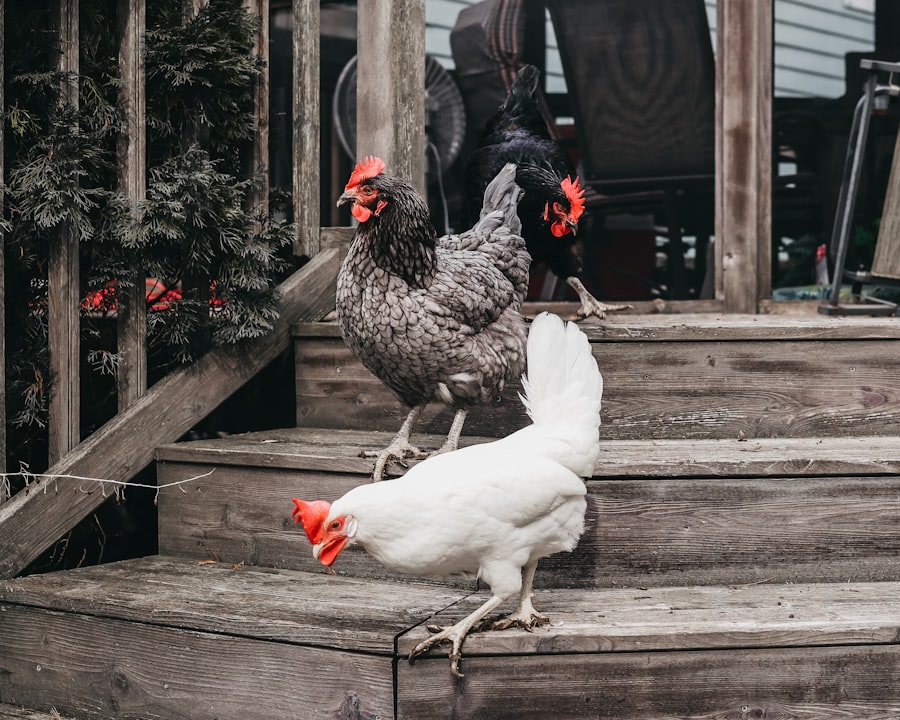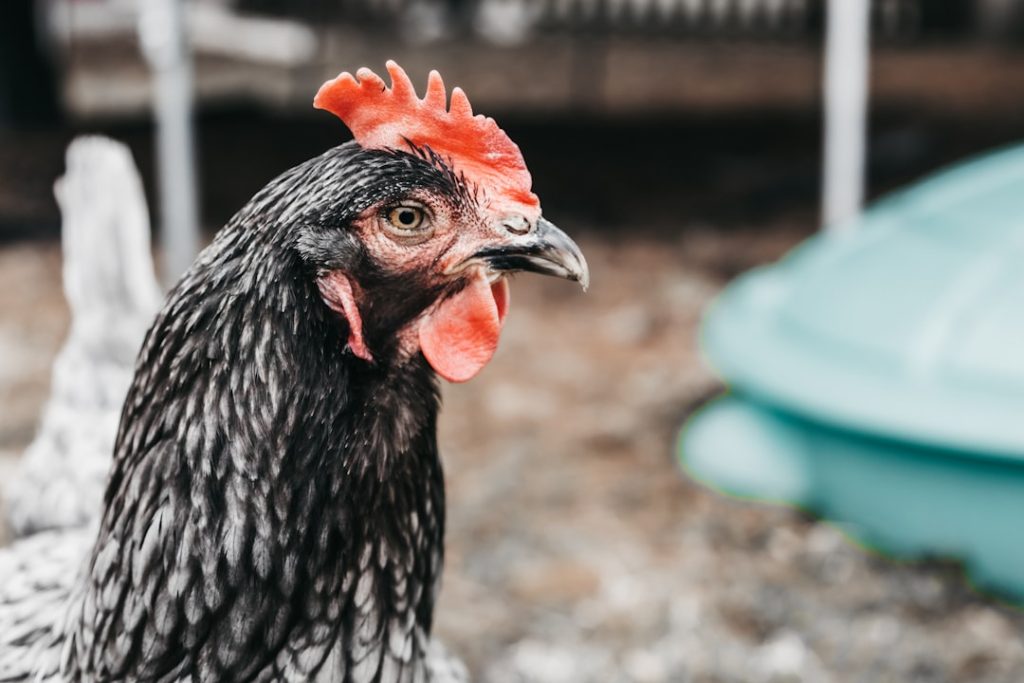Raising chickens is a multifaceted endeavor that requires careful planning and consideration. The first step is selecting an appropriate breed based on factors such as egg production, temperament, and climate adaptability. It is crucial to determine the number of chickens to keep, taking into account available space for both coop and run areas.
Local regulations and zoning laws must be consulted, as they may limit the number of chickens permitted. Proper housing is essential for chicken welfare. A well-designed coop provides shelter and protection from predators, while ensuring adequate ventilation and ease of cleaning.
The chicken run, an enclosed outdoor area, allows for exercise and foraging. Both coop and run should offer sufficient space for the flock size. Appropriate bedding materials and nesting boxes for egg-laying hens are also necessary components of chicken housing.
Understanding these fundamental aspects of chicken keeping is vital for creating a suitable environment that promotes the health and well-being of the flock. This knowledge forms the foundation for successful chicken raising, whether for egg production, meat, or as companion animals.
Table of Contents
- 1 Coop and Run Essentials
- 2 Feeding and Watering Supplies
- 3 Health and First Aid Kit
- 4 Egg Collection and Storage
- 5 Predator Protection
- 6 Additional Supplies for Comfort and Entertainment
- 7 FAQs
- 7.1 What are the essential items for keeping chickens?
- 7.2 Why is a suitable coop important for keeping chickens?
- 7.3 What are nesting boxes used for in chicken keeping?
- 7.4 Why are feeders and waterers important for chickens?
- 7.5 What type of bedding material is suitable for chickens?
- 7.6 Why is fencing important for keeping chickens?
Key Takeaways
- Chicken keeping requires basic knowledge of their needs and behaviors
- Coop and run essentials include proper ventilation and predator-proofing
- Feeding and watering supplies should be easily accessible and kept clean
- A first aid kit is essential for treating common chicken health issues
- Proper egg collection and storage is important for maintaining freshness
- Predator protection is crucial to keep chickens safe from harm
- Additional supplies for comfort and entertainment can include perches and toys
Coop and Run Essentials
Coop Essentials
When it comes to setting up a coop for your chickens, there are several essentials to consider. First and foremost, the coop should provide adequate space for your chickens to roost, nest, and move around comfortably. The general rule of thumb is to allow at least 2-3 square feet of space per chicken inside the coop.
Nesting Boxes and Perches
Additionally, you’ll need to provide nesting boxes for your hens to lay their eggs. These boxes should be filled with clean bedding and placed in a quiet, dark area of the coop to encourage egg laying. It’s also important to provide perches for your chickens to roost on at night, as well as ramps or ladders for easy access to the nesting boxes.
Run Requirements
In addition to the coop, a chicken run is essential for providing outdoor space for your chickens to exercise and forage. The run should be securely enclosed with wire mesh to protect your chickens from predators. It’s important to provide at least 8-10 square feet of space per chicken in the run to allow for ample room to move around.
Additional Considerations
You’ll also need to consider providing shade and shelter within the run, as well as access to fresh water and food. By ensuring that your coop and run are well-equipped with these essentials, you’ll be providing a safe and comfortable environment for your chickens to thrive.
Feeding and Watering Supplies

Proper nutrition is essential for keeping your chickens healthy and productive. When it comes to feeding your flock, there are several supplies you’ll need to consider. First and foremost, you’ll need a good quality chicken feed that is appropriate for the age and purpose of your chickens.
There are different types of feed available, such as starter feed for chicks, grower feed for young chickens, layer feed for hens, and broiler feed for meat birds. It’s important to provide a balanced diet that includes protein, carbohydrates, vitamins, and minerals to support the overall health of your chickens. In addition to feed, you’ll need feeding supplies such as feeders and waterers.
There are various types of feeders available, including trough feeders, tube feeders, and gravity feeders. Similarly, there are different types of waterers, such as gravity waterers, nipple waterers, and automatic waterers. It’s important to choose feeding and watering supplies that are appropriate for the size of your flock and easy to clean and maintain.
Additionally, you’ll need to ensure that your chickens have access to fresh water at all times, as dehydration can lead to health issues and decreased egg production. By providing the proper feeding and watering supplies, you’ll be supporting the overall health and well-being of your flock.
Health and First Aid Kit
Just like any other pet or livestock animal, chickens can experience health issues from time to time. It’s important to be prepared with a first aid kit and basic knowledge of chicken health care. When setting up a first aid kit for your chickens, there are several essential items to include.
These may consist of wound care supplies such as gauze pads, bandages, antiseptic solution, and scissors. Additionally, you may want to include basic medications such as electrolytes for hydration, antibiotic ointment for minor wounds, and poultry vitamins for overall health support. In addition to a first aid kit, it’s important to have a basic understanding of common chicken health issues and how to recognize them.
This may include symptoms of respiratory infections, parasites, bumblefoot, egg binding, and other common ailments. By being proactive in monitoring the health of your flock and having the necessary supplies on hand, you’ll be better prepared to address any health issues that may arise. It’s also a good idea to establish a relationship with a local veterinarian who has experience with poultry in case more serious health concerns arise.
By prioritizing the health care needs of your flock, you’ll be better equipped to provide a safe and healthy environment for your chickens.
Egg Collection and Storage
If you’re raising chickens for their eggs, it’s important to have the proper supplies for collecting and storing them. When it comes to egg collection, it’s important to check the nesting boxes at least once a day to gather any freshly laid eggs. You’ll need a collection basket or egg carton to safely transport the eggs from the coop to your kitchen.
It’s important to handle the eggs gently and avoid washing them unless absolutely necessary, as washing can remove the protective bloom that helps keep bacteria out of the egg. Once you’ve collected the eggs, it’s important to store them properly to maintain their freshness and quality. Eggs should be stored in a cool, dry place away from strong odors such as onions or garlic.
It’s best to store them with the pointed end down in an egg carton or egg storage container. Fresh eggs can be stored in the refrigerator for up to 3-4 weeks, while unwashed eggs can be stored at room temperature for up to 1-2 weeks. By following these guidelines for egg collection and storage, you’ll be able to enjoy fresh eggs from your flock while maintaining their quality and safety.
Predator Protection

Securing the Coop
When setting up predator protection for your coop and run, there are several measures you can take. First and foremost, it’s important to ensure that the coop is secure with sturdy walls and a predator-proof door that can be securely latched at night.
Fortifying the Run
In addition to securing the coop, it’s important to fortify the run with wire mesh that extends underground to prevent digging predators from gaining access. You may also want to consider adding hardware cloth around the perimeter of the run or using electric fencing as an added deterrent.
Removing Hiding Spots and Attractants
It’s also important to remove any potential hiding spots or attractants for predators around the coop and run area. By taking these measures to protect your flock from predators, you’ll be providing a safe and secure environment for your chickens to thrive.
Additional Supplies for Comfort and Entertainment
In addition to the essentials of chicken keeping, there are several additional supplies that can enhance the comfort and well-being of your flock. For example, providing dust baths is essential for chickens to maintain their feather health and control parasites. You can create a dust bath area by filling a shallow container with sand or diatomaceous earth for your chickens to dust themselves in.
Furthermore, providing enrichment activities can help prevent boredom and reduce stress in your flock. This may include hanging treats or vegetables from a string for your chickens to peck at or providing toys such as hanging mirrors or boredom busters. Additionally, providing perches or roosts at different heights within the run can give your chickens opportunities for exercise and mental stimulation.
Lastly, it’s important to consider providing shade structures or shelters within the run area where your chickens can seek refuge from extreme weather conditions. By providing these additional supplies for comfort and entertainment, you’ll be creating a stimulating environment that supports the overall well-being of your flock. In conclusion, raising chickens can be a fulfilling experience when done with proper planning and consideration of their needs.
By understanding the basics of chicken keeping, providing essential supplies such as coops and runs, feeding and watering equipment, health care supplies, egg collection and storage tools, predator protection measures, and additional supplies for comfort and entertainment; you’ll be well-equipped to raise a healthy and happy flock of chickens. Whether you’re raising chickens for eggs, meat or simply as pets; creating a safe and enriching environment is essential for their overall well-being.
If you’re looking for essential items for keeping chickens, you might also be interested in this article on chicken coop run plans. Having a secure and spacious run for your chickens is crucial for their health and well-being, and this article provides helpful tips and plans for creating the perfect outdoor space for your feathered friends.
FAQs
What are the essential items for keeping chickens?
Some essential items for keeping chickens include a suitable coop, nesting boxes, feeders, waterers, bedding material, and fencing to keep the chickens safe.
Why is a suitable coop important for keeping chickens?
A suitable coop provides shelter and protection for the chickens from predators and the elements. It also provides a place for the chickens to roost and lay eggs.
What are nesting boxes used for in chicken keeping?
Nesting boxes provide a designated area for chickens to lay their eggs. They should be filled with clean bedding material to keep the eggs clean and protected.
Why are feeders and waterers important for chickens?
Feeders and waterers provide a constant supply of food and water for the chickens, ensuring they have access to essential nutrients and hydration.
What type of bedding material is suitable for chickens?
Common bedding materials for chickens include straw, wood shavings, or shredded paper. The bedding material should be clean, dry, and regularly replaced to maintain a healthy living environment for the chickens.
Why is fencing important for keeping chickens?
Fencing helps to keep the chickens contained in a specific area, protecting them from predators and preventing them from wandering into unsafe areas. It also helps to define the boundaries of their living space.
Meet Walter, the feathered-friend fanatic of Florida! Nestled in the sunshine state, Walter struts through life with his feathered companions, clucking his way to happiness. With a coop that’s fancier than a five-star hotel, he’s the Don Juan of the chicken world. When he’s not teaching his hens to do the cha-cha, you’ll find him in a heated debate with his prized rooster, Sir Clucks-a-Lot. Walter’s poultry passion is no yolk; he’s the sunny-side-up guy you never knew you needed in your flock of friends!







